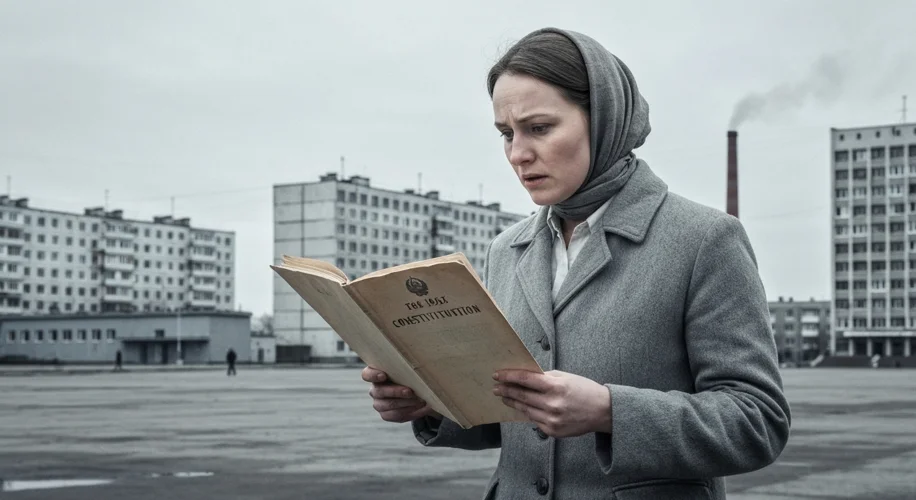In the grand, often bewildering tapestry of Soviet history, the Constitution of 1936 stands as a document of bold promises and stark realities. Drafted under the watchful eye of Joseph Stalin, it was heralded as the “most democratic in the world.” Central to this declaration was Article 125, a seemingly robust guarantee of fundamental freedoms: freedom of speech, press, assembly, and street processions. It even stipulated the right to housing and rest. But for the citizens of the USSR, particularly during the tumultuous Stalinist era, the question lingered: was this parchment a shield, or merely a gilded cage?

The year is 1936. The Great Purge is beginning to cast its long, ominous shadow. Across the vast expanse of the Soviet Union, millions were being swept up in a terrifying wave of arrests, executions, and forced labor. Yet, in Moscow, a new constitution was being unveiled. Stalin himself presented it, beaming with pride, proclaiming it the apex of socialist democracy. Article 125, in particular, was trotted out as irrefutable proof. “No citizen shall be denied the right to vote or be elected,” it declared, and then, crucially, “freedoms of speech, press, and assembly are guaranteed to all citizens by law.” These were not mere platitudes; they were presented as legally binding rights.
The reality on the ground, however, painted a drastically different picture. Consider the case of Nikolai Bukharin, a prominent Old Bolshevik and former ally of Stalin. In 1937, during the height of the purges, Bukharin was put on trial. He, along with others, was accused of treason, espionage, and sabotage – charges that were, in the vast majority of cases, fabricated. During his trial, Bukharin, like many defendants, was compelled to confess to crimes he did not commit. What he did not have, despite the presence of Article 125, was the freedom to speak truth without fear. His “confession” was extracted under duress, a grim performance for a predetermined outcome.
Article 125 was not a genuine safeguard; it was a sophisticated piece of propaganda, designed to project an image of freedom to the outside world and, perhaps, to offer a sliver of false hope internally. The Soviet legal system of the time was not built on the principle of protecting individual rights but on the necessity of maintaining the power of the Communist Party. When the interests of the Party, or more specifically, Stalin’s regime, were deemed to be threatened, constitutional guarantees became utterly irrelevant.
This is where the chilling brilliance of totalitarian control lay. The constitution included clauses that allowed for the restriction of rights in the name of “public safety” or “socialist legality.” These vague phrases acted as convenient catch-all provisions, allowing the state to circumvent any inconvenient right. If criticizing the government or expressing dissenting views was deemed a threat to public safety, then Article 125 was simply overridden. The state did not need to repeal the article; it just needed to declare its actions necessary for the preservation of the Soviet state.
There are few, if any, documented instances where Article 125 was successfully invoked as a defense by an accused individual against the state. Instead, it was routinely weaponized. The state used the appearance of constitutional rights to legitimize its actions. For example, public trials, ostensibly guaranteeing the right to a defense, often devolved into show trials where the outcome was decided long before the first witness testified. The very freedoms Article 125 purported to protect—speech and press—were used to condemn those who dared to exercise them.
The aftermath of the 1936 constitution, and Article 125 in particular, is a stark reminder of the chasm that can exist between legal pronouncements and lived reality. While the document offered a veneer of democratic principles, the Stalinist regime systematically dismantled any semblance of genuine freedom. The constitution became less of a protector of rights and more of a tool for the state’s narrative. It served to confuse, to legitimize, and ultimately, to facilitate repression. The enduring legacy of Article 125 is not one of freedom defended, but of a promise broken, a potent symbol of the Soviet Union’s constitutional paradox under Stalin.

